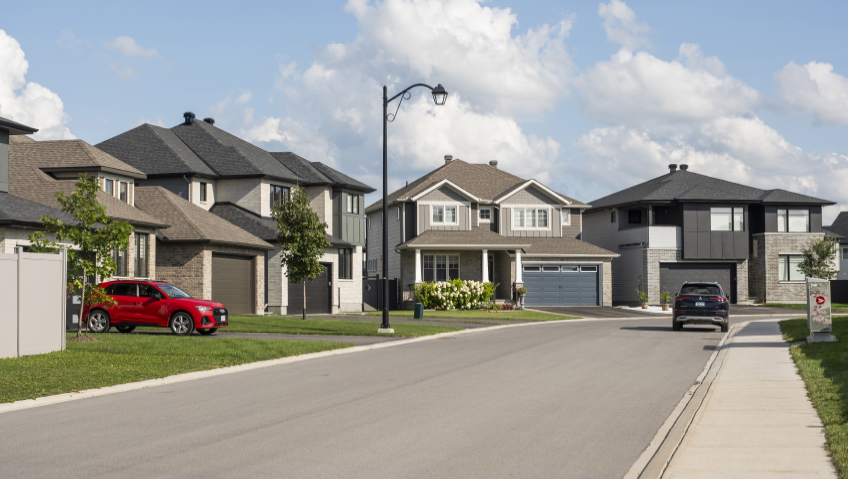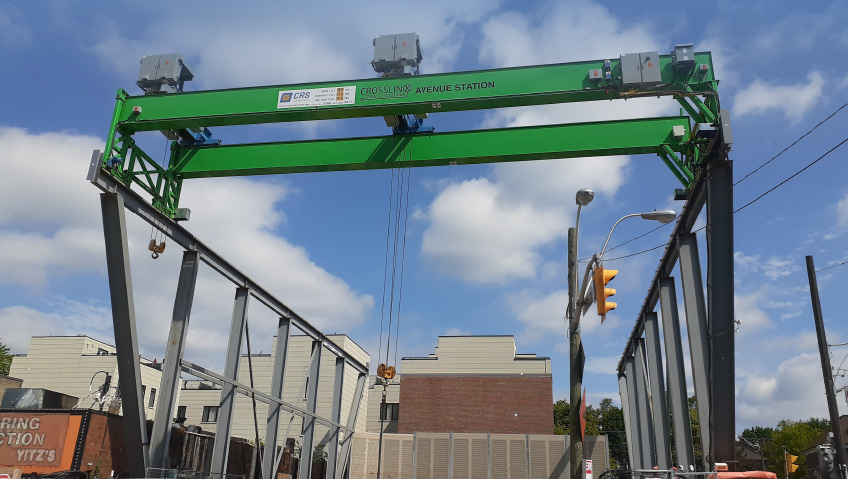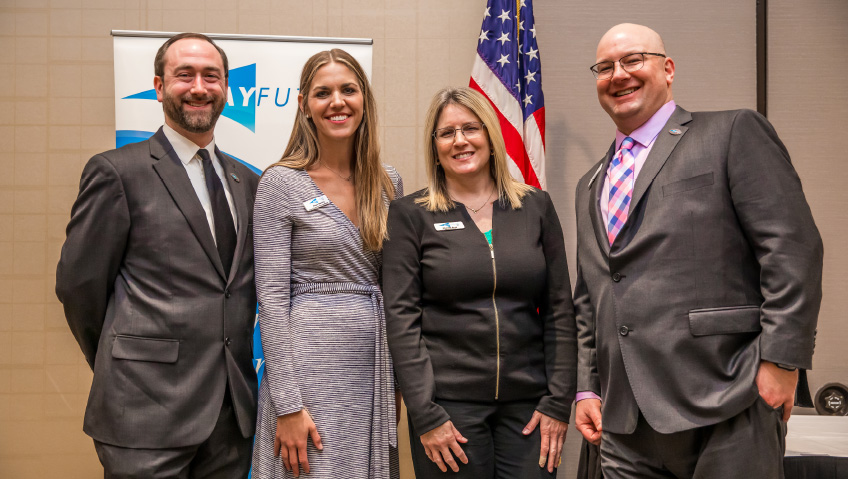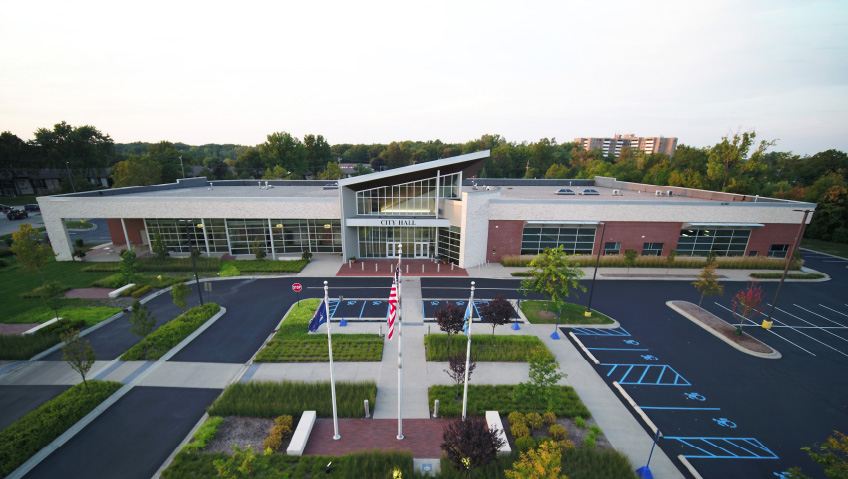A home is a sacred place where individuals live their lives to the fullest, something that Cardel Homes is deeply aware of. For 50 years, this family-owned homebuilder has continually grown its capacity and thus, its impact, a testament to the homes it has built, the spaces it has created and the relationships it has formed in the many communities it serves across North America.
Certainly, half a century is a milestone to be celebrated in any industry, but for Cardel Homes, it is a chance to acknowledge how far it has come and the people who got it there—as well as an opportunity to position the company for another 50 years of success.
From humble beginnings
Cardel Homes came to be in a very unusual way. In 1973, while schoolteachers Del and Caryl Ockey were using their summer off from teaching to build their own home in Calgary, Alberta, they caught the attention of others in the community who were interested in having a home of the same calibre built for them.
The couple put their heads together, their efforts together, and the first three letters of their names together and the rest, as they say, is history. Cardel Homes became a family-owned custom homebuilder in the Calgary market.
From a handful of custom homes to start to more than 20,000 homes built in over 150 communities spanning four regions in two countries, Cardel Homes remains a family-owned company today, though its scope and reach has significantly grown.
In 1996, Cardel Homes ventured beyond the Alberta border to establish a presence in Ontario and in 2001 it traversed international borders to expand into Florida, and four years later into Colorado. Each of these expansions was borne out of the strong relationships the company has built throughout the years with its partners who asked for support in their own expansion activities.
According to Chief Operating Officer (COO) Greg Graham, “We were looking for long-term growth opportunities, stability within a market so that we can stay there and be there long-term. Every time we look at an opportunity, if we don’t see long-term duration, if we don’t see land position and lot position, we won’t endeavour to go there just to do one project.”
A winning philosophy
Despite the company’s impressive growth, now under the leadership of Ryan Ockey, Caryl and Del’s son who was sweeping floors and picking up nails at a young age, the roots of the company and the driving philosophy remain the same 50 years later.
“The philosophy, it’s about family, faith, and community,” says Graham. “The philosophy is filtered down through the organization where leadership treats staff as family and we listen to them, we engage with them, we enable them and empower them to make decisions and really try to support them in everything we do.”
For Graham and the leadership team at Cardel Homes, the goal is simple: “Do the right thing for our customers, the right thing for our community, and maintain that family attitude and hands-on approach in everything we do.”
Cardel Homes’ projects are built by their family for yours. From single-family homes to multifamily projects, which the firm added to its repertoire in 2002, Cardel Homes continues to set new benchmarks with its exquisite designs, thoughtful layouts, and calculated elevations.
“We believe our homes are built for real life, meaning we look at how people will use their homes, how they will furnish them and do the layout, the natural light, the traffic flow; design is certainly a big element,” says Graham of the care that is taken by the architectural team to produce quality homes that make sense.
The company’s “production mind-frame,” as Graham refers to it, includes an offering of low-rise single-family homes ranging from 1,200 to 5,000 square feet as well as townhomes, stacked townhomes, low-rise condominiums, and apartments. “We don’t get into the concrete and steel—that’s a very different business model—but as far as homes, low-rise or what we call ground-oriented homes, we build every style and every kind of those,” he explains.
In 2004, Cardel Homes made its foray into recreational products with the construction of the two main buildings at Kicking Horse Mountain Resort in Golden, BC, as well as into the real estate, land acquisition, and development market.
As Graham explains, “We go out and we acquire land in all of our divisions and we take it through the entitlement process, we get all of the approvals in place, and we oversee all of the construction and onsite servicing to the point where we can turn over service lots to our homebuilding division. We certainly scrutinize the market to see what the land opportunities are for the future and that’s what we’ve been able to do in those four markets.”
Strong foundations
To ensure long-term, sustainable growth, Cardel Homes established itself in the market with a solid product and outstanding service while structuring the company like its homes—on a solid foundation and with the right team guiding it forward.
“The best thing about the way we’ve established ourselves is we do have a corporate office, our C-Suite, that provides oversight on all of operations, but each of our divisions has a division leader who’s accountable for running the operations and running the land,” says Graham.
He adds, “We’re there to support them, but we provide them with some autonomy. We empower them to make decisions. The corporate office is our investment arm, so they treat us as their advisor and they actually operate as if it was their business. When it’s a hands-on ownership mentality like that it’s pretty easy to see how they drive the business to success.”
With its level of talent, skills, resources, and support, Cardel Homes has discovered a successful formula that it has been able to replicate over the decades. While the core philosophy and approach has remained the same, the company goes a step further with its trade partners to identify and utilize the latest tools, materials, and innovative approaches.
“We still build houses the same way we did 50 years ago: we excavate, dig a hole, pour foundation, frame it up with wood frame, put a roof on it, put windows in it, and develop the interiors,” says Graham. “We work with our trade partners on innovation into their supplies (HVAC, air conditioning, tankless water heaters), we talk about concrete and how concrete is evolving and the technology therein, so we’re constantly looking for innovation in the way we do things.”
He adds, “We’re always looking for constant improvement and looking for new innovative ideas that we can incorporate into our business philosophy that we believe customers will embrace and want to have as part of their house. We can build the house; they have to make it a home.”
Ultimately, for Graham and the rest of the Cardel Homes team, “Our goal is to shape communities and build houses that our clients can embrace and turn into homes. We’re looking to make sure we can continue to deliver safe, secure, comfortable places where people feel they belong. Whenever we are away, we always look forward to getting home, so our job is to provide the structure that people feel they can come home to.”
Building for the future
This year, Cardel Homes is taking a moment to celebrate the milestone 50 years it has been in operation, while remaining deeply committed to ensuring that the company thrives for another 50 or more by overcoming the current challenges of the day.
“Both in Canada and the U.S. over the next ten years, government has to understand that they have to work in partnership with the development and home building community to meet those [housing] targets that they said are required. Otherwise, it’s economics 101; we’re going to have a shortage in residential housing, prices are going to escalate again, and we’re going to be back into this inflationary problem that we’ve had over the last couple of years,” Graham cautions.
Acknowledging that the character and function of communities must be preserved, more must be done to encourage development and reduce the red tape to ensure there are sufficient levels of housing to meet population demands. This will also require a concerted effort by government, education, and industry to strengthen the talent pipeline to ensure homes can be built.
The good news, however, is that Cardel Homes is well positioned to take advantage of the market. With good land positions in the various markets it serves, a strong knowledge of the building industry, the right team of professionals on its side, and a commitment to continuous improvement, with the support of its partners the company will continue to deliver its quality homes to customers.
“That gives us longevity, that gives us visioning that we can share with our partners and our trades; when you work for Cardel, as long as we continue to do good work together, you have a future here,” says Graham of the opportunities to grow in the industry.
When it comes to the future, he says, “We’re looking at it not only from the eyes of the company but from the eyes of our customers, our trade partners. One of the things we pride ourselves on is our quick reflexes. We make quick decisions, we have solid management, we’ve got great dedication to our industry, so I think that bodes well for our team, our customers, and our industry as a whole.”






